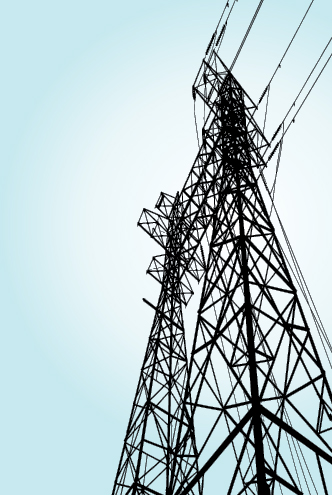

Electricity customers aggrieved by inaccurate metering or billing issues, or the unsatisfactory handling of their complaints, will be able to switch to a licensed supplier of their choice in the none-too-distant future. Plans by the Authority for Electricity Regulation (AER) to open up the electricity supply segment of the market will effectively do away with the jurisdictional limits that have currently created monopolies out of the nation’s DisCos (Distribution and Supply Companies) Muscat, Mazoon and Majan in the Main Interconnected System (North Oman Grid). With competition, a customer located in one part of the grid will be able sign up with a supplier operating in another part. In essence, location will no longer be an impediment in choosing one’s service provider when supply activities are fully liberalized.
Announcing its strategy for the dismantling of supply monopolies, the Authority said: “The Authority will work on developing an overall programme of work and timescale to progress the Competitive Market Review (CMR) in 2018. The Authority commenced preparatory work on the development of competition amongst Licensed Suppliers in 2017 and intends to implement the recommendations in 2018. This will include engagement with key-stakeholders which will enable the Authority to develop a timescale from the introduction of competition in the supply business.”
Significantly, the move to liberalize the supply business will eventually culminate in the privatization of the distribution and supply segments of Oman’s power sector, according to Qais al Zakwani, Executive President of the Authority.
The initiative is in line with the ongoing privatization of the electricity sector — a process that began in 2005 with power generation services, which are almost entirely private owned at present, he said. Next in line for privatization is the distribution and supply business, which is currently the subject of a due diligence process. The ultimate objective of privatization is the enhance the efficiency of these state-owned entities, Al Zakwani added in a recent media briefing on the Authority’s initiatives for 2018.
According to Abdulwahahab Abdullah al Hinai, Director — Licensing & Legal Affairs, at the Authority, the introduction of competition in the supply business will effectively lead to the decoupling of supply from the remit of the country’s DisCos.
“Supply activities are now merged with the distribution business. The aim is to separate the two activities and open the supply business, so customers can receive electricity supply from any licensed supplier. There will be no monopoly on a regional basis,” said Al Hinai.
Supplying electricity within the North Oman grid (MIS) are three state-owned entities: Muscat Electricity Distribution Company (MEDC), Majan Electricity Company, and Mazoon Electricity Company. “When the market is liberalized, we hope new market entrants will come in. The aim is to separate the two activities, lower entry barriers, enable more competitors to come in, and allow existing suppliers to compete as well,” he stated.
It must be stressed however that competition in the supply business will not be based on electricity prices. After all, prices are fixed based on tariffs approved by the Council of Ministers.
“Competition will be based on quality of service; better the quality of service, the more customers you will have and greater the potential for higher revenue for the company. Competition also encourages licensed suppliers to be more efficient in their operations, and thereby help maximize their profits,” the official explained.
Liberalization and privatization of supply services are key to the goal of ramping up customer service standards in the sector, according to the regulator. Efficiency and standards have admittedly improved over the years, following the Authority’s mandating of a common ‘blueprint’ to be applied by the licensees in the way how they run their customer service operations.
New IT systems have been installed to enable the DisCos to better monitor and control the level of service provided to customers. Key Performance Indicators have also introduced in order to enhance transparency and identify areas of weak performance.
Yet, despite some clear improvements from those measures, the Authority has been “concerned” that licensees were still failing too frequently to meet their customer service licence obligations and were making insufficient effort to accurately record performance delivered, the regulator noted in its 2016 Annual Report.
An audit conducted by the Authority jointly with an international firm in 2016 revealed “significant weaknesses” across several of the DisCos, the regulator pointed out. These deficiencies related to IT systems, contract management systems and practices, the verification of claimed meter reading problems where access to the customer’s premises could not be obtained, and disconnection procedures, it noted.
“It was very disappointing to the Authority to note some of these failures, even after 10 years of operation in a regulated environment and the Authority has taken and will continue to take action to improve matters,” the regulator lamented in the report.
New measures have since been introduced to bolster customer service delivery. Licensees have been asked to develop an action plan setting out clear improvement targets and deadlines. As part of their commitments under the action plan, the licensees must ensure regular and accurate meter reading, while the work of external service providers is properly managed and audited. It advocates a more sympathetic approach to customers with payment difficulties, fully consistent with the approved Late Payment Code of Practice.
The action plan also moots a revised approach to disconnection and an immediate end to the practice of providing customers with a fuse with which to reconnect their own supply. Further, it calls upon suppliers to ensure that special needs customers, who are dependent on electrically powered medical equipment, are alerted in the event of outages, and safeguarded from adverse impacts, as far as possible.
Oman Observer is now on the WhatsApp channel. Click here



